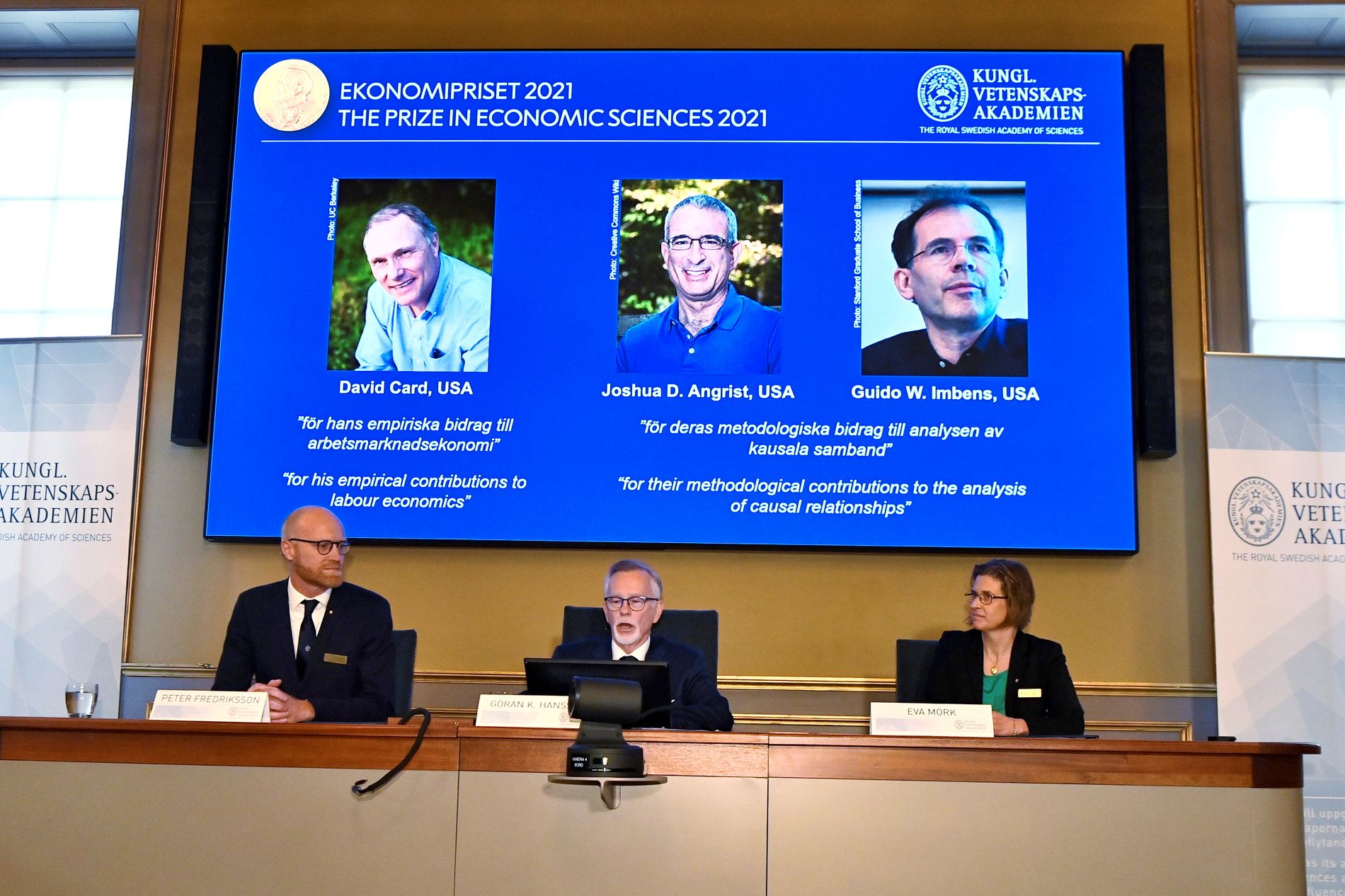The Nobel Prize in Economics is awarded to David Card, Joshua D. Angrist and Guido W. Imbens.
–
It will appear at a press conference in Stockholm on Monday.
David Card receives the award “for his empirical contribution to labor market economics,” while Joshua D. Angrist and Guido W. Imbens receive the award “for their methodological contribution to the analysis of causal relationships”, it is stated in the rationale.
– Card’s studies of important societal issues and Angrist’s and Imben’s efforts have shown that natural experiments are a rich source of knowledge. Their research is of great help when decisions are made for the benefit of society, says the chairman of the prize committee, Peter Fredriksson.
The prize is formally named Sveriges Riksbank’s prize in economic science in memory of Alfred Nobel. It was first distributed in 1969, and is not part of Alfred Nobel’s will.
This year, the prize winners share a sum of 10 million Swedish kroner. David Card gets half, while the other half is shared between Joshua Angrist and Guido Imbens.
That’s why they win
The Committee points out that David Card has analyzed the labor market effects of minimum wage, immigration and education using natural experiments.
“His studies from the early 1990s challenged conventional wisdom, which led to new analyzes and further insights,” the committee writes.
Among other things, they show that raising the minimum wage does not necessarily lead to fewer jobs. The studies also show that those born in a country can often benefit financially from new immigration, while those who immigrated earlier risk being negatively affected, the committee writes.
But data from natural experiments are difficult to interpret. For example, extending the compulsory education by one year for one group of students (and not others) does not affect everyone in the group in the same way, »it says.
However, this methodological problem was solved by Joshua Angrist and Guido Imbens in the mid-1990s, when they showed what conclusions about cause and effect can be drawn from natural experiments, the committee writes.
Three Norwegians, two women
The very first Nobel Prize in economics was awarded to the Norwegian Ragnar Frish and the Dutchman Jan Tingbergen, back in 1969.
Since then, two other Norwegians have received the award: Trygve Haavelmo in 1989 and Finn Kydland in 2004.
So far, a total of 89 people have received the award. Two of these are women: Elinor Ostrom in 2009 and Esther Duflo in 2019.
–


